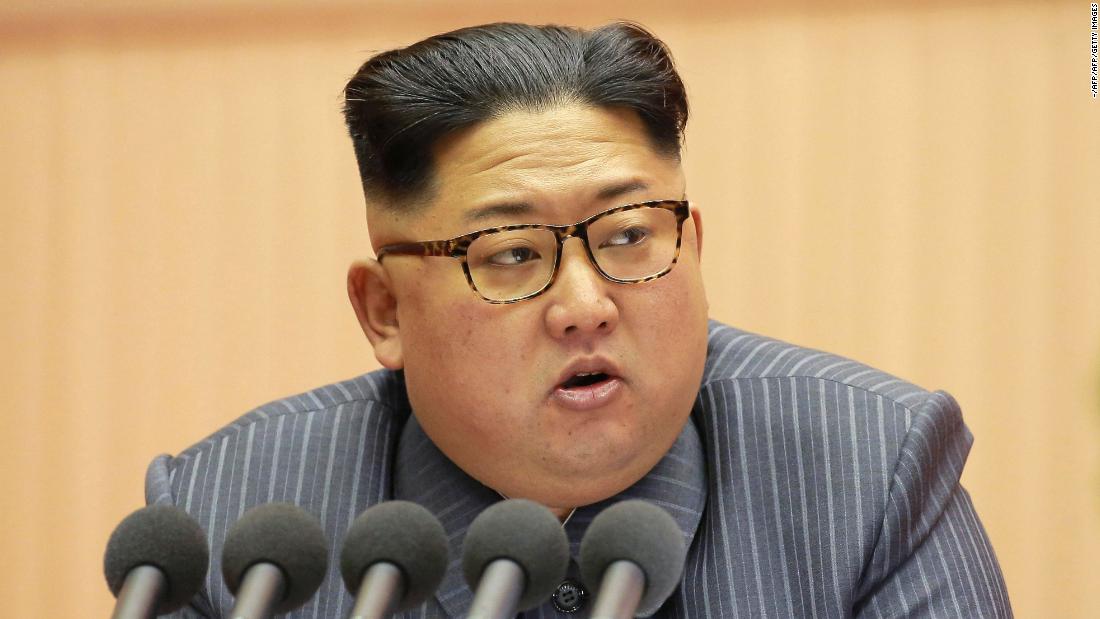Kim Jong Un's annual New Year's Day address is akin to the State of the Union for US Presidents.
It's when the North Korean leader sets out his aims for the coming year, and this year it reaped almost instant results with the start of the first face-to-face talks with Seoul in almost two years.
The North Korean leader talked about factory jobs and coal. He talked about textiles and scientific research. He talked about domestic production of consumer goods. He even talked about green initiatives.
"We have created a mighty sword for defending peace, as desired by all our people who had to tighten their belts for long years," said Kim.
"This great victory eloquently proves the validity and vitality of the Party's line of simultaneously conducting economic construction and building up our nuclear forces and its idea of prioritizing science, and it is a great historic achievement that has opened up bright prospects for the building of a prosperous country and inspired our service personnel and people with confidence in sure victory."
It's not exactly "Make North Korea Great Again," but it's not wholly dissimilar either. In policy circles, Kim's agenda is known as "byungjin," a twofold strategy of investing in the economy and the nuclear program.
"The amazing thing that's been hiding in the open is the North Korean game plan of byungjin," said John Park, director of the Korea Working Group at the Harvard's Kennedy School of Government.
According to Park, the North Korean regime under Kim has been very consistent in saying that its primary policy goal is the parallel pursuit of a nuclear deterrent for self-defense and the building of the economy.
To that end, Kim used the speech to call upon his rocket and nuclear industries to mass-produce the weapons that have already been successfully tested, while also pursuing economic advances, such as diversified energy sources.
Experts CNN spoke to believe Kim's proclamations aren't the wish-list of a delusional dictator, but rather a key set of priorities tallied by a calculating, pragmatic leader who plans to address the immediate challenges his country faces.
"Every year these speeches are primarily about the economic situation," said John Delury, a professor at Yonsei University's Graduate School of International Relations in Seoul. Delury has listened to each of Kim's speeches since the young leader took power in 2011.
"(But) Kim Jong Un is not pretending everything is groovy," said Delury. "He's consistently acknowledged hardship and that the economic situation should be better. And he's publicly committed himself to improving the economy."
Key clues
Some of the proposals offered specific insight into the government's evolving strategy, explained Rodger Baker, a vice president at the geopolitical analysis firm Stratfor.
Analysts said Kim appeared to acknowledge the difficulty his country faces in the coming year due to the punitive sanctions passed by the United Nations in response to the countries nuclear and missile tests, especially those that target Pyongyang's energy supply.
Midway through the speech, he offered his "noble respects" to the "heroic Korean people" who, despite the "difficult living conditions caused by life-threatening sanctions and blockade," have "firmly trusted, absolutely supported and dynamically implemented our Party's line of simultaneously promoting the two fronts."
The latest round of sanctions passed by the United Nations Security Council in December were said to be the toughest yet, imposing tighter limits on the supply of all refined petroleum products to North Korea.
In addition, Kim's talk of not wasting power and exploring hydroelectric and geothermal energy sources is likely borne more out of necessity than environmental concerns, Baker believes.
This view was shared by Duyeon Kim, a senior fellow at the Korean Peninsula Future Forum in Seoul. "His speech also seemed to be an implicit admission that sanctions appear to be working or he's expecting them to bite," said Kim.
But the North Korean leader's speech also hinted at how he plans to ensure his country survives the crippling sanctions targeting Pyongyang's oil imports.
"The electric-power industry should maintain and reinforce the self-supporting power generation bases, and direct a great deal of efforts to developing new power sources," said Kim.
Coal has helped drive the North Korean economy for decades. The country's reserves could last for decades -- and could possibly be converted into gas to meet the country's energy needs as its ability to import oil is slashed, according to Baker.


No comments:
Post a Comment